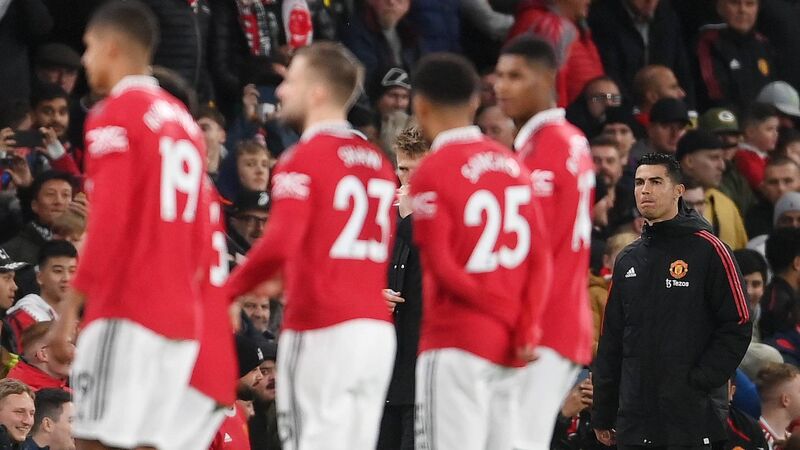Paul Rouse: Ronaldo's unwillingness to accept decline has sucked the joy out of his last days

MANCHESTER, ENGLAND - OCTOBER 19: Cristiano Ronaldo of Manchester United looks on prior to the Premier League match between Manchester United and Tottenham Hotspur at Old Trafford on October 19, 2022 in Manchester, England. (Photo by Laurence Griffiths/Getty Images)
The best thing about the Olympia Theatre in Dublin is that there is absolutely nowhere to hide. There’s a crowd standing right in front of you, and climbing above that crowd are balconeyed rows of seats and boxes in a style familiar since the late 19th century.
A thousand people – and more – sloping down towards the stage, waiting to be entertained, looking for a night.









